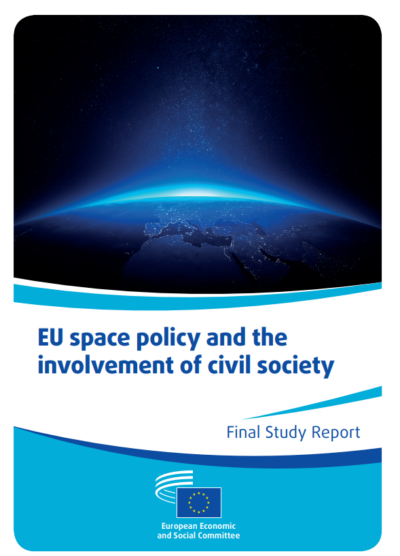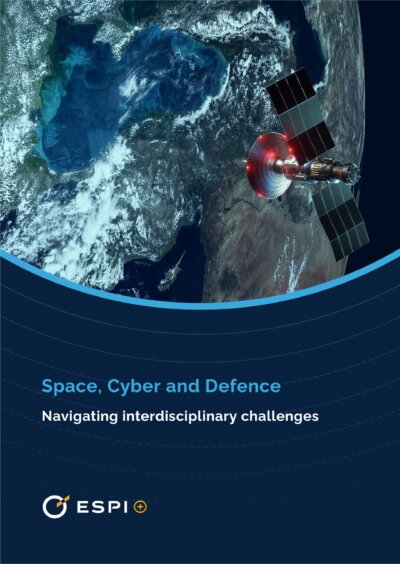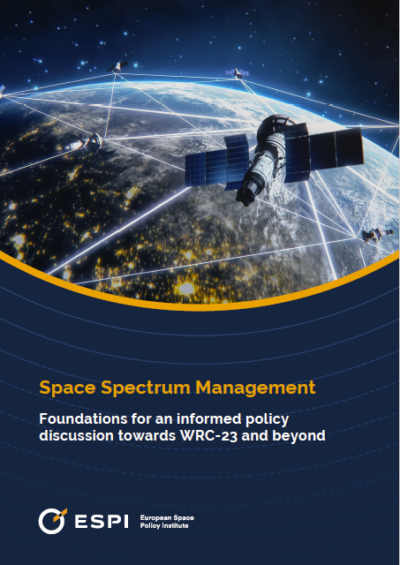Executive Brief No. 56
1. Why the Accelerators?
ESA Agenda 2025 sets out a vision for how Europe could seize the opportunity of the current revolution in space activities to help make a green, digital, safe, and inclusive world. Central to this vision is a reinforced and more effective cooperation between ESA, its Member States, and the EU through existing and future programmes and initiatives. In October 2021, an ESA DG-appointed High-Level Advisory Group made recommendations on the main societal challenges representing priorities for this reinforced cooperation and highlighted the importance of accelerating the use of Space in Europe, identifying three main thematic areas of action:
- Space for a Green Future: the S4GF Accelerator “will provide actionable information, helping form the baseline for effective European adaptation strategies to support the green transition, enabling the EU to reach its goal of becoming carbon neutral by 2050, and supporting its Green Deal”.
- Rapid and Resilient Crisis Response: through a crisis information management system the R3 Accelerator “will increase Europe’s lead in Earth observation systems, establish Europe as a global leader in humanitarian action and support European autonomy in energy and water supply. It will enhance Europe’s digital sovereignty in information handling and communication across the whole of the economy”.
- Protection of Space Assets: the PROTECT Accelerator aims to ensure resilient availability and functioning of space infrastructure by bringing together all European players to secure European autonomy, technological and commercial leadership for safe and independent access to and use of space and safety of the critical ground-based infrastructure.
2. A response to critical upcoming challenges of the European space sector
The High-Level Advisory Group outlined the potential of the Accelerators in fostering Europe’s private investment in space in the framework of a dramatic growth of commercial space activities. Such new opportunities will pave the way to a more prominent role of private actors alongside ESA, the EU and other partners to further develop and foster coordination of space-related activities and services. Beyond the technical relevance of the issues tackled by the Accelerators, they aim to stimulate innovation and the emergence of new business models contributing to shift the focus from system to services and from programmes to the market in a closely coordinated manner between institutional and commercial players. Accelerating the use of space requires a user-driven approach. Therefore, the High-Level Advisory Group advised ESA to find ways to ensure end-users engagement from inception in order to secure the demand for new space-based services as reliable, resilient and tailored solutions to their needs. Additionally, the Accelerators open new perspectives to Member States to contribute to ESA’s activities in a framework in which they can pursue their national priorities, while ESA operates as an integrator, federating national initiatives and incorporating various concepts into the Accelerators.
Member States and European stakeholders have expressed their interest in further exploring the new mechanism of the Accelerators. The principles have been endorsed by European leaders with the “Matosinhos Manifesto”, three workshops addressing the Accelerators’ thematic areas held in January, and at the 2022 European Space Summit. Additionally, ministers approved seed funding for the Accelerators at the next ESA Council of Ministers and called on ESA to identify other sources of funding. After such positive and promising initial steps, it is now time to set concrete roadmaps and milestones for programmatic implementation, including the definition of S.M.A.R.T. (Specific, Measurable, Achievable, Relevant and Time-bound) objectives in a user-driven approach.
3. ESA’s new role as solution architect
Beyond traditional technical and programmatic challenges, the concept of the Accelerators raises unprecedented questions regarding the relation between ESA on the one hand, and Member States, users, and the European Commission on the other hand.
With the Accelerators approach, ESA is called to broaden its responsibilities as programme manager to encompass a new role as solution architect for the development and deployment of Europe-wide operational space infrastructure and service. This is not unknown territory though, since there are obvious similarities with the way ESA currently interacts with its Member States and with the scientific community in the framework of the Science Programme. In these matters the Agency relies on the Member States to provide the mission instruments and to implement part of the programmes beyond their financial contribution. Additionally, its scientific activities are based on a user engagement approach to reach out to the European scientific community effectively and efficiently, either in a direct relationship with them or through Member States representation. In this respect, the Science Programme provides relevant best practices and hindsight to build on for the further elaboration of the Accelerators model. However, the incomparable breadth and diversity of the users’ community in an operational context, the necessity to ensure effective complementarity with EU Galileo- and Copernicus-related downstream activities, as well as reservations from some Member States to further rely on ESA for security-related applications are poised to raise issues that call for appropriate innovative governance schemes.
4. ESA’s new role as solution architect
The technical and political relevance of the Accelerators was firmly and consensually confirmed. In the framework of their preparation, ESA has undertaken multiple consultations with Member States, stakeholders, and final users. The three issues identified by the High-Level Advisory Board need to be urgently addressed and space is poised to play a major role in any innovative solution that will be deployed at European level to better anticipate the consequences of climate change, ensure a rapid response in crisis management, or foster the in-orbit security of European assets. Nevertheless, it is also true that the concrete implementation of the Accelerators implies addressing several fundamental issues that the European space sector must or will have to face shortly.
Firstly, the topics of the Accelerators just confirm that security at large has become a pervasive concept that impacts and has implications for almost all the space-related activities currently under consideration.
Secondly, the Accelerators highlight the need to ensure users engagement throughout Europe and the development and exploitation processes of future operational space systems addressing public needs. This goes way further the formal and single “users’ consultation” currently implemented.
Thirdly, it is clear that Europe has not yet adapted its institutional setup to fully take advantage of the greater ability of private actors to propose innovative solutions and ensure faster development and deployment. The Accelerators might be the proper framework to progress in this direction.
Last but not least, the recent and ongoing multiplication of national initiatives clearly shows that there are well identified priorities in space and national actors want to contribute to their implementation. In this respect, a framework needs to be set to maximize the return of any European investment in space and reap the benefits at European level of any national public or private initiative. Again, the Accelerators are probably the ideal test-case to initiate a joint reflection in terms of space infrastructure architecture bringing together a variety of otherwise uncoordinated initiatives
To tackle these issues, ESA has a strong background and is probably the most appropriate organisation to assess various options with all stakeholders and present concrete proposals to its Member States. However, this entails that they are ready and open to consider a new role for the Agency in security-related matters and to accept to rely on its technical expertise to devise overarching European space solutions to address some of their critical needs.




